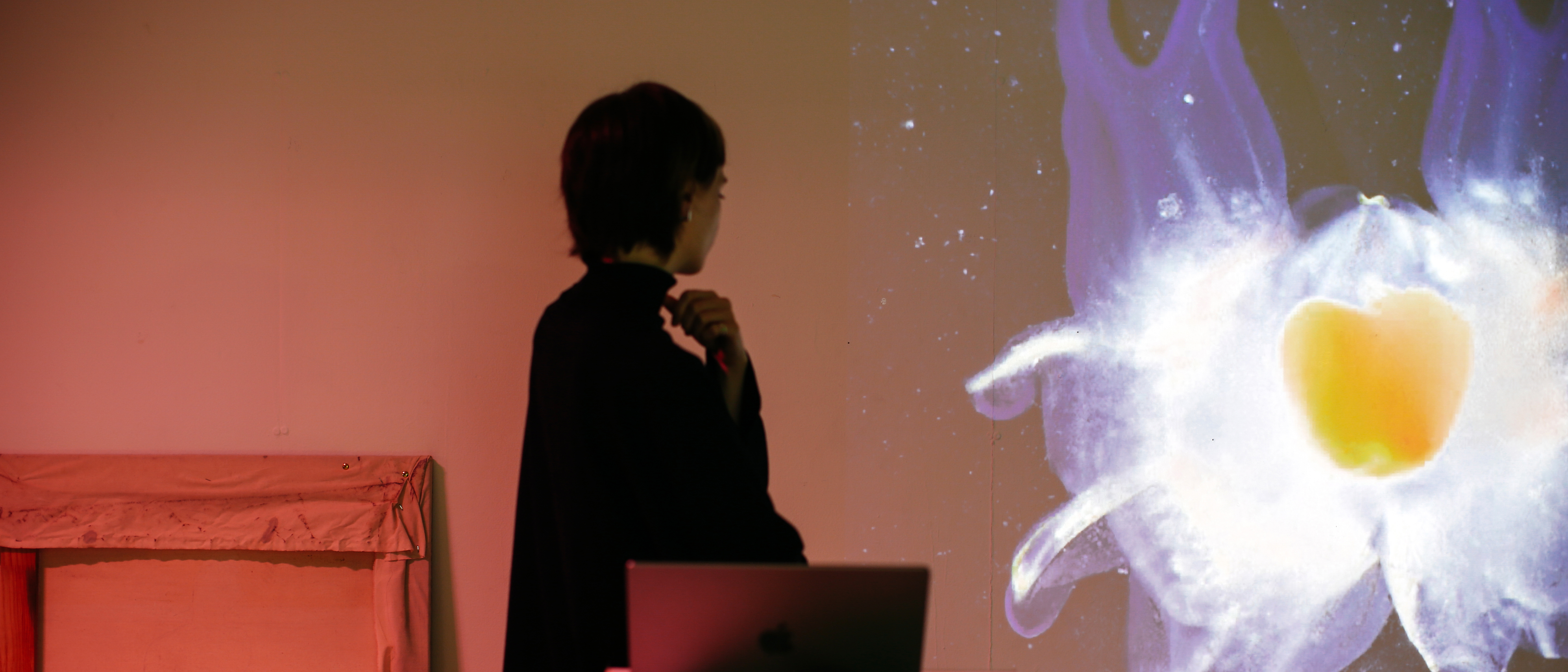Course units
Year 1
Unit 1: Introduction to Fine Art: Computational Arts
We’ll introduce you to your discipline and to the studios, technical workshops and library resources that support it. We‘ll orientate you within your course, the College and the University and the local neighbourhood of Camberwell.
Unit 2: Establishing practice
Establish your practice through experimentation with materials, processes, and techniques. You’ll learn to recognise how materials, processes and techniques can generate meaning. You’ll also test how audiences receive your work through open studio events.
Unit 3: Situating practice
Challenge yourself to develop your ongoing self-directed practice by reflecting on the work of other artists. You’ll begin to situate your practice in relation to social and environmental questions and present some of your work in an end-of-unit exhibition.
Unit 4: Initiating dialogue
Consider artistic practice as a conversation. You’ll review and discuss your work with your peers, alongside developing the professional and social skills to communicate your practice confidently.
Year 2
Unit 5: Exploring context through practice
Unit 5 is about re-establishing your practice and progressing your research methodologies. You’ll explore the artistic potential and critical debates around computational arts. During workshops, you’ll create work that addresses your interests in materials and contextual themes. You’ll also participate in group critiques of yours and your classmates’ work.
Unit 6: Collaborative and collective practices
You will be introduced to different ways in which collaborative working can help you to focus and enhance your own creative strengths. You’ll have the chance to work with fellow students and creative communities.
Unit 7: Refining computational arts practice
During studio seminars, you’ll explore subjects such as politics, sustainability and ethics in relation to machine learning. This will help you develop contextual awareness of the field and its wider applications. At the end of Unit 7, you’ll participate in a group exhibition which responds to emergent software technology contexts.
Unit 8: Final year study proposal
Unit 8 will help you define and articulate your final year research and practice goals. This will enable you to situate your practice in terms of context, audience and material/technical choices in preparation for your final year.
Year 3
Unit 9: Practice and articulation
The unit will support the creative realisation of your artwork and further development of your practice. You’ll undertake research and present your findings either in written form, or as a presentation or through a live project/work placement. This will be an extension of your previous research.
Unit 10: Practice and presentation
During this unit, you'll continue to refine your practice with the aim of producing a new body of work for a public display degree show. This unit will also develop your understanding of different display and audience engagement methods as well as the ethics of representation.
Optional Diploma between Years 2 and 3
Between Years 2 and 3 of the course, you’ll also have the opportunity to undertake one of the following additional UAL qualifications:
Diploma in Professional Studies (DPS)
This optional diploma can be taken between years 2 and 3. With support from your tutors, you’ll undertake an industry placement for a minimum of 100 days/20 weeks. As well as developing industry skills, you’ll gain an additional qualification upon successful completion.
Diploma in Creative Computing
Between years 2 and 3, you can undertake the year-long Diploma in Creative Computing. This will develop your skills in creative computing alongside your degree. After successfully completing the diploma and your undergraduate course, you’ll graduate with an enhanced degree: BA (Hons) Fine Art: Computational Arts (with Creative Computing).
Diploma in Apple Development
This optional diploma can be taken between years’ 2 and 3. Over the extra year you’ll become an Apple developer, undertaking a learning programme which includes content from Apple’s official 'Develop in Swift' curriculum. After successfully completing the diploma and your undergraduate degree, you’ll graduate with an enhanced degree: BA (Hons) Fine Art: Computational Arts (with Apple Development).

